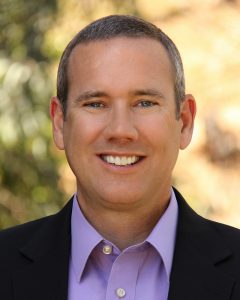 Randy Conley is the Vice President of Client Services & Trust Practice Leader for The Ken Blanchard Companies. He oversees Blanchard’s client delivery operations and works with organizations around the globe helping them build trust in the workplace. Trust Across America named him a Top Thought Leader in trustworthy business behavior and he is a founding member of the Alliance of Trustworthy Business Experts. Inc.com named Randy a Top 100 Leadership Speaker & Thinker and American Management Association included him in their Leaders to Watch in 2015 list. Randy is the author of the award-winning Leading with Trust blog (www.leadingwithtrust.com) and a contributing author of the books “Trust, Inc. – Strategies for Building Your Company’s Most Valuable Asset,” and “Trust, Inc. – 52 Weeks of Activities and Inspirations for Building Workplace Trust.” You can follow Randy on Twitter @RandyConley.
Randy Conley is the Vice President of Client Services & Trust Practice Leader for The Ken Blanchard Companies. He oversees Blanchard’s client delivery operations and works with organizations around the globe helping them build trust in the workplace. Trust Across America named him a Top Thought Leader in trustworthy business behavior and he is a founding member of the Alliance of Trustworthy Business Experts. Inc.com named Randy a Top 100 Leadership Speaker & Thinker and American Management Association included him in their Leaders to Watch in 2015 list. Randy is the author of the award-winning Leading with Trust blog (www.leadingwithtrust.com) and a contributing author of the books “Trust, Inc. – Strategies for Building Your Company’s Most Valuable Asset,” and “Trust, Inc. – 52 Weeks of Activities and Inspirations for Building Workplace Trust.” You can follow Randy on Twitter @RandyConley.
What does organizational culture mean to you?
An organization’s culture can be described as “the way we do things around here.” It’s the norms, policies, expectations, and behaviors that permeate daily life in the organization. The way people act, and don’t act, tell the story of the organization’s culture.
What are the major determinants of organizational culture?
Three important factors come to mind when I think about what determines an organization’s culture. The first is the behavior modeled by senior leaders. Everyone in the organization is looking to the senior leaders to know what acceptable behavior looks like, so senior leaders need to remember that their actions are always under a microscope. They are responsible for setting the tone of the culture. The second factor is the extent to which the values of the organization are lived out on a daily basis. Are the values used to make decisions and demonstrated in the actions of individuals, or are they just nice platitudes on a poster displayed in the lobby? Finally, the third factor is the level of ownership displayed by the rank and file employee to nurture and develop the culture. If the front-line employees are truly invested in building the organization’s culture, you’ll see them hold each other accountable for what is and isn’t acceptable behavior.
What is the role of employees in organizational culture?
I just mentioned the level of ownership they display in developing and nurturing the culture, but I would also add that employees can, and should, hold senior leaders accountable for role modeling the desired behaviors of the culture. It may sound odd to say that front-line employees should hold senior leaders accountable, versus the other way around, right? But in reality, every member of the organization is accountable to each other in upholding the values of the organization. No one is above the culture, and healthy organizations have developed systems and practices to encourage mutual accountability.
What are common problems associated with managing organizational culture?
I think the chief problem is thinking you can “manage” the culture. An organization’s culture is a living organism that grows and changes over time based on all the individual parts of which it is comprised. It’s foolish to believe this living organism can be tightly managed in the same way we manage our business processes. However, the culture can be influenced or nudged in certain directions, and I think that’s where each member is responsible for acting in ways that support what they want the culture to be.
What are the ways to innovate company culture? Any best practices to share.
First and foremost, I believe organization’s need to have crystal clear values that function as the “north star” of what the culture should embody. Secondly, those values need to be behaviorally defined so that everyone knows what values-based behavior does and doesn’t look like. Best practices I’ve seen in this regard are when organizations take an inclusive approach to defining their values. They allow everyone in the organization to have a voice in creating the values, which in turn creates a sense of ownership in employees taking the responsibility to live out those values.

1 thoughts on “Randy Conley, V.P. of Client Services & Trust Practice Leader, The Ken Blanchard Companies”